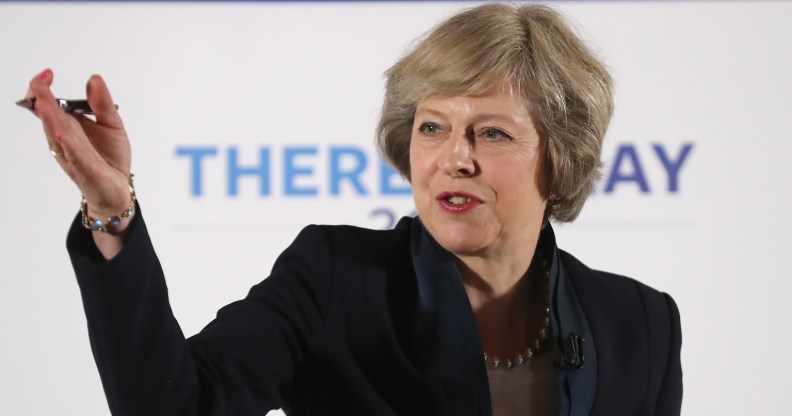Comment: The Prime Minister’s attack on university ‘safe spaces’ was misguided and misinformed

Rob Young, Vice President Society and Citizenship at the National Union of Students, responds to Prime Minister Theresa May’s public criticisms of university ‘safe spaces’.
Over the past few months there has been huge debate and some criticism about what we in the student movement can do to ensure that all students feel able to participate in democracy and debate on campuses around the country.
This isn’t as straightforward as it sounds because life on campus isn’t always easy for LGBT+ students.
NUS research shows that almost a third of LGB and half of Trans students have wanted to drop out of Higher Education, and that the number is around the same in Further Education.
We also know that hate crime is on the rise for the LGBT+ community more widely and we have a duty to ensure that within our structures we have robust and clear policies to ensure that homophobia, biphobia and transphobia is not used to silence or exclude people.
When we talk about how we do this, we refer to creating “safe spaces” where all people feel able to take part in debate and discussion.
Many people, not least the Prime Minister, seem to be a bit confused about what a safe space is. This isn’t about “No Platforming,” that’s a completely different issue, which you can read more about below and here.
And it’s not something we have a formal approach on where there is a fixed and written policy, although a number of policies you will find in every responsible organisation (safeguarding, code of conduct, respectful behaviour and so on) will contribute to the creation of safe spaces for people.
Safe spaces are set up to ensure that all students can take part in debate and discussion without the fear of harassment or abuse. Far from being a threat to healthy debate, they ensure thoughts and ideas can be explored respectfully and experiences shared without prejudice or fear.
Those who oppose safe spaces will often bleat about ‘freedom of speech’, but that’s just a nonsense.
If we put up a sign on a debating room door saying “no blacks, no gays, no Irish” and in our debate we allowed individuals to make personal jibes and use homophobic or racist remarks, we would be promoting bigotry and freedom of speech over decency, tolerance and respect. What a miserable way to learn.
Too often the debate on free speech fails to take into account how marginalised groups have their individual and collective voices trampled and de-legitimised.
NUS and Students’ Unions have a responsibility to protect the rights and safety of their students, and they can, and should, be able create safe spaces that do that.
They also, and this is a totally separate thing, can take decisions to stop groups who threaten or incite violence from having a platform to speak and assemble within their institution. In other words, they can “No Platform” them.
The NUS No Platform policy was devised in the 1970s to protect the rights of students from violent attacks by far right neo-Nazi groups, such as the National Front, by not giving them a platform to speak or assemble in students’ unions.
This policy, which is reviewed on an annual basis and refers to a small and specific group of organisations, has continued to protect students of faith, LGBT+, Black and women students since its conception. It has developed to meet new challenges and include fringe street groups like National Action and the EDL.
I fundamentally believe No Platform is a legitimate tool in preventing people who would seek to harm particular groups of students from being allowed on campus.
However, a small number of people have misused the policy in the past, using it as an excuse to stifle debate, damaging the whole policy as a result. Rare misuse of policy aside, the need for a No Platform policy remains as acute now as it was in the 70s.
It must be said that there is one thing I agree with Theresa May on: Higher Education – in fact, all education – should be a place where we can debate, disagree and learn from each other.
However, Theresa May’s position seems to be one of privilege, which has forgotten that diverse voices get stifled, identities are attacked and people’s safety is threatened.
Discrimination does still exist.
It is through a combination of the creation of safe spaces (by setting rules, boundaries and the tone of a meeting, for example) and the proper use of the No Platform policy that we will keep all students safe on campus and we will free up marginalised and previously silenced voices creating richer, fuller, more thoughtful debate and discussion.
Really, I’m just not sure what all the fuss is about.
Rob Young is Vice President Society and Citizenship for the National Union of Students and an active LGBT rights campaigner

